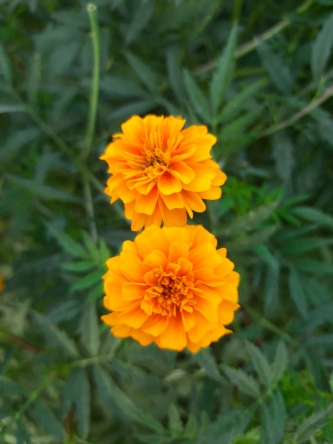Demise of Andaman lady marks end of a society
TAPAS CHAKRABORTY
Feb. 4: Boa Senior had been lonely the last few years of her life. When she died last week, she was no longer alone — she took her tribe and language with her.
The 85-year-old, who had survived the December 2004 tsunami, was the last member of the Bo tribe and the last speaker of the Bo language, one of the 10 Great Andamanese languages.
With her death, her tribe has become extinct and its language, which linguists have been studying for a long time, is also lost.
A media release issued by Survival International, a group that researches on indigenous people across the world, said Boa was the oldest of the Great Andamanese, who now number just 52. “With the death of Boa Sr and the extinction of the Bo language, a unique part of human society is now just a memory,” director Stephen Corry said today.
The media release said the Bo were thought to have lived in the Andaman Islands for as long as 65,000 years, making them the descendants of one of the “oldest human cultures on Earth”.
Linguists mourned the loss.
“Her death brings a silent catastrophe to the community which lost a heritage that is equal to identity,” said Narayan Kumar Choudhary, a doctoral candidate at the Centre for Linguistics School of Languages, Literature and Culture Studies, JNU. “The loss of Boa Sr is the loss of the house itself. What remains now is only the ruins.”
Boa died on January 26 as the nation celebrated Republic Day. She had no children. JNU linguistics professor Anvita Abbi, who knew Boa for many years, said the old woman had been very lonely the last few years of her life.
“Since she was the only speaker of (Bo) she was very lonely as she had no one to converse with…. (But) Boa Sr. had a very good sense of humour and her smile and full-throated laughter were infectious,” Abbi told Survival international.
Boa had survived the 2004 tsunami. “We were all there when the earthquake came,” she later told linguists who had interviewed her. “The eldest of us had told us ‘the Earth would part, don’t run away or move’. The elders told us, that’s how we know.”
A social anthropologist in Delhi said Bo was a highly endangered language because of several reasons ranging from external forces like economic, religious, cultural and educational subjugation to internal forces such as a community’s negative attitude towards its own language.
He said the inter-community marriages the Great Andamanese had with Karen (Burmese) and other settlers led to decay in their linguistic and tribal distinctions. The islanders now speak Hindi and some local dialects.
“It is no wonder that language deaths go unnoticed,” said Professor V.S. Sahay, an anthropologist at Allahabad University who worked on Andaman tribals.
Linguistics professor Abbi said Boa felt the neighbouring Jarawa tribe was lucky to live in forests away from the settlers who now occupy much of the Andaman Islands.
The press release issued by Survival International said that originally ten distinct tribes, the Great Andamanese were 5,000 strong when the British colonised the Andaman Islands in 1858. Most were killed or died of diseases brought by the colonisers.
Having failed to “pacify” the tribes through violence, the British tried to “civilise” them by capturing many and keeping them in an “Andaman Home”. Of the 150 children born in the home, none lived beyond the age of two.
The surviving Great Andamanese depend largely on the Indian government for food and shelter, and abuse of alcohol is rife, the release added.
Survival International director Corry said the Great Andamanese were first massacred, then all but wiped out by paternalistic policies which left them ravaged by epidemics of disease, and robbed of their land and independence. “Boa’s loss is a bleak reminder that we must not allow this to happen to the other tribes of the Andaman Islands.Courtesy:TheTelegraph


पिगबैक: Global Voices Online » India: The Death Of Bo Language
पिगबैक: Global Voices em Português » Índia: A Morte do Idioma ‘Bo’
पिगबैक: Global Voices Online » India: Death of a Prehistoric Language
पिगबैक: India: Death of a Prehistoric Language
पिगबैक: Global Voices in Italiano » India: se ne va Boa Senior, l’ultima a parlare la lingua preistorica Bo